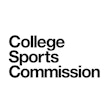
College softball has enjoyed a rise in popularity of late, but coaches of the game are worried the NCAA's recent settlement of a federal antitrust lawsuit, which opens the door to paying athletes, could slow the sport's growth.
“We’re all hoping that it doesn’t hurt softball, that’s for sure,” said Texas coach Mike White, whose school has one of the largest budgets in college athletics, told the Associated Press. “We are in a growth stage, along with several other women’s sports that have taken off right now. We’re certainly afraid of (changes hurting softball), that’s for sure. We don’t want that to happen. We’re hoping each individual school sees the benefit of keeping the money in softball and keeping it as a premier sport.
UCLA coach Kelly Inouye-Perez isn't worried about her program, but she's not as sure about other collegiate softball programs.
“I don’t fear the sport dying, but I do say I feel badly that I don’t believe the amount of teams are going to be able to sustain what’s coming in the future,” she said. “I don’t know. That’s just potentially what could happen because we’ve had conversations of understanding the impact of what could happen, knowing every school is going to have to find a way to be able to fund all Olympic sports.”
Florida coach Time Walton worries about an uneven playing field.
“My greatest fear for a long time has just been, at what point in time is our model sustainable for all sports, coaches, programs across the country,” he said. “That’s my biggest concern. I do believe we’re heading down a path that’s going to be probably a lot more equivalent for males and female athletes alike. But how many of them? I think that’s the biggest question that I would have.”
USA Softball, which is set to compete in the 2028 Olympic Games in Los Angeles, draws from the collegiate ranks for its team. USA Softball executive director Craig Cress says he hopes officials are looking at the big picture.
“My greatest fear for a long time has just been, at what point in time is our model sustainable for all sports, coaches, programs across the country,” he said. “That’s my biggest concern. I do believe we’re heading down a path that’s going to be probably a lot more equivalent for males and female athletes alike. But how many of them? I think that’s the biggest question that I would have.”





































